20 Corgi Mixes That’ll Give You Cuteness Overload
Considering a Corgi? Here’s everything you ever wanted to know about the many, many types of Corgis
Considering a Corgi? Here’s everything you ever wanted to know about the many, many types of Corgis
by Jackie Brown, | April 9, 2024

Maria Galutva / Shutterstock
With their short legs, long torso, and fluffy rump, the Corgi is one of the cutest dog breeds around. And Corgi mix breeds? Well, they take that cuteness to a whole new level. Those little Corgi legs occur due to a condition called achondroplasia, which causes dwarfism. All Corgis carry these genes, so when purebred Corgis combine with other breeds, you’ll end up with some very unique-looking Corgi mix breeds that often inherit the shortened legs of the Corgi.
Some Corgi mixed-breeds are considered designer dogs, such as the Horgi and Corgipoo, but most of these pairings are simply a result of accidental litters. Either way, Corgi mixes are frequently found in animal shelters and pet rescue groups, waiting for their forever homes.
Because these dogs are the products of cross-breeding, they will vary in sizes, colors, coat types, health, and temperaments. If you know the breeds that make up your Corgi mix, you can get a better idea of what to expect from that particular mix. There really is no limit to the many types of Corgi mix-breeds you might encounter. But as you’ll see below, some are more common than others.

Veronica Varos / Shutterstock
The small Corgi and robust German Shepherd have more in common than you might think. Both are herding breeds, developed to work closely with humans to move and contain livestock. Usually medium to large in size (often in contrast to its short legs), the German Corgi exhibits typical herding-breed characteristics, including intelligence, trainability, high energy, and a tendency to “herd” anything that moves. This Corgi mix does best with active families and individuals who can provide adequate exercise and attention.

Mike / AdobeStock
The Siberian Husky is a cold-weather working breed primarily used to pull sleds in snow and ice. Since both Corgis and Huskies have energy to spare, a combination of these breeds will require lots of exercise and preferably, a job to do. You can expect this dog to be medium-sized with shorter legs and exhibit behavioral problems if a pet parent doesn’t tire their Horgi’s body and mind each day. A home with space to run is best for these pups.

Maryswift / Dreamstime
These days, it’s common to combine the Poodle with almost any breed imaginable (Doodle dogs). A 50/50 mix of Corgi and Poodle may end up with the Poodle’s curly, non-shedding coat, or it might have a Corgi-type coat — or something in between. Depending on the size of the Poodle parent, a Corgipoo can span from small to medium to large in size. Poodles and Corgis are friendly and affectionate in disposition, but also smart and active. So plan on moderate daily exercise and training with this mix.

Michael Brian / Alamy Stock Photo
The Chihuahua is one of the smallest breeds, but it has a larger-than-life, feisty personality. Mixes of Chihuahuas and Corgis tend to be larger than the tiny Chihuahua, but more petite than the medium-sized Corgi. The personality of a Corgi-Chihuahua mix might be energetic like the Corgi, more low-energy like the Chihuahua, or somewhere in between. Coat type will probably be medium-short and straight, and almost any color or pattern.

Tawat Kambum / Shutterstock
The Golden Retriever is a hunting retriever that loves nature and has a heart of gold. Both the Golden Retriever and Corgi are highly trainable and intelligent with plenty of energy, and you can expect much of the same from a mix of these breeds. They might look a lot like Goldens with short legs, or they might lean more toward the fox-like appearance of the Corgi. Their coat will likely be medium-short, but either straight or wavy.

Gerda Beekers / Shutterstock
The Pug is brachycephalic, which is a fancy term for dogs with flat faces. A Pug-Corgi mix might inherit this visage, have a Corgi’s long muzzle, or appear somewhere in between. Short legs are likely, and Porgis tend to be small or medium size. Their coat is often short and may have the Pug’s fawn coloring. Corgis are athletic with a lot of energy, but Pugs are more laidback. So it’s hard to know if this mix will be energetic or mellow.

Mal Haven / Shutterstock
The Labrador Retriever is a high-energy hunting retriever with lots of love to share. Both breeds are very trainable and smart, so this mix should be well-behaved with enough training and daily exercise. Even if short-legged, a Lab Corgi is likely to have a larger body, though some might be medium sized. Their coats can be straight and short like the Lab or medium-long like the Corgi.

pichit / Shutterstock
Like the Corgi, the Shih Tzu has short legs, though the breed is not a dwarf. A Shih Tzu-Corgi mix can assume the appearance of one of its breeds, or look wildly different from either parent breeds. The hair might be long and silky like a Shih Tzu, straight like a Corgi, or even wavy and/or wiry like a terrier. Sweet and friendly, the Shih Tzu is lively but not as active as the Corgi.

Lukaspictures / Shutterstock
Border Collie Corgi mixes, also known as Borgis, inherit excellent qualities from both their parent breeds. Border Collies are known for their intelligence, while Corgis are renowned for their loyalty and friendliness. Borgis are likely to be medium-sized and have moderate-to-high exercise requirements. They can have a range of appearances, including a mix of short legs and a long body, or a medium-length coat with a mix of colors such as black, white, and brown. Overall, Borgis make great companions for active families who are looking for a smart, affectionate, and energetic dog.

Rehome / Adopt a Pet
Saint Bernards are massive dogs with heavy coats, developed to rescue travelers in snowstorms. The Saint Bergi may have the long, thick coat of the Saint Bernard, the medium-long, straight coat of the Corgi, or a variation of the two. Due to size differences, combining these two breeds could lead their puppies to have physical issues. For instance, the short legs of the Corgi may have more trouble supporting a very large, heavy body.
This Corgi mix will likely inherit the Dalmatian’s trademark spots, and also have a high probability of getting the Corgi’s short legs. Dalmatians are high-energy and intense as a breed, so plan on consistent training and lots of daily exercise.
This mix may inherit the Berner’s beautiful tri-color coat, a color Corgis also come in. But due to the significant size discrepancy, mixing these breeds could also lead to problematic physical traits, such as short legs that cannot support a massive body.
Mastiffs are loyal and strong but rather mellow, so exercise needs might be lower than other Corgi mixes. And if this mix inherits both short legs and a large, heavy body, the dog could experience trouble walking or running, or have joint issues.
Most terriers are small, so a mix of terrier and Corgi is likely to result in a proportionate dog, albeit possibly with the very short legs of the Corgi. Terriers are affectionate but feisty. However, the mellower Corgi personality might win out.
A mix of these breeds will likely be medium-sized with a larger body and short legs. The Samoyed mix’s coat might be fluffy, possibly white or light-colored. This mix will probably need a good amount of exercise to be content.
Corgis and Cocker Spaniels are not dramatically different in size, so a mix of these breeds will be about 20-30 pounds. Cockers are merry and gentle, and have as much energy as Corgis, so daily moderate exercise is a must.
This mix will probably be on the smaller size thanks to the Maltese’s diminutive frame, and could inherit the easy-going attitude of the Maltese or the drive of the Corgi. The coat might be silky and straight, fluffy and medium-length, or even wiry like a terrier.
Boxers are strong, athletic, and intelligent — traits that helped them excel at their original jobs as police dogs and watch dogs in Germany. Boxers and Corgis are extremely different in the physical sense, so a mix of these breeds can have an array of looks, from a short-legged Boxer to short-nosed Corgi. They are likely to be medium sized, and you can expect them to have moderate-to-high exercise needs.
There are two types of purebred Corgis: the Pembroke Welsh Corgi and the Cardigan Welsh Corgi. Although each dog is unique, there are a number of typical physical, behavioral, and temperamental traits that a Corgi cross-breed could inherit. So before committing to a Corgi mix, here are a few things that you should keep in mind.
While the two Corgi breeds are medium-sized, weighing up to 38 pounds, some Corgi mixes can be smaller (or larger) due to their specific genetics. It all depends on what breed the Corgi is mixed with and which genes are dominant.
The Corgi has a medium-length double coat with a short, thick, weather-resistant undercoat and a coarser, longer outer coat. There’s a good chance a Corgi mix will inherit this thick coat, but being mixed-breed, expect that coat types can vary from short to longer (or even more curly).
Corgis come in many colors including red, sable, fawn, and black and tan, with or without white markings. But with other dogs, such as Chihuahuas and German Shepherds thrown into the mix, we really can’t be sure what color or colors your dog’s fur will be. It’s best not to have expectations going in.
Corgis have upright ears, with the Cardigan’s ears are slightly larger than the Pembroke’s but that doesn’t mean all Corgi mixes do. Mix in a Labrador, and you might end up with some adorable floppy ears.
You might not know, but traditionally, Pembroke Corgis have their tails docked at birth, though some puppies are occasionally born without a tail. Cardigans have a long tail that’s carried low while standing or running. So expect most Corgi mixes to sport a long tail.
Corgis have plenty of energy, and are capable of both the speed and endurance required for herding. To that end, they need moderate daily exercise. Most Corgi mixes will inherit moderate to high-energy levels, even if mixed with low-energy breeds such as Pugs.
Corgis are bold, kind, loyal, affectionate, and adaptable. These pups are also generally even-tempered, lively, and friendly. Expect your Corgi mix to inherit some of these great qualities. Most Corgis mixes will get along great with kids and other pets, though they might tend to “herd” the kid or pets around. Any nipping at clothes or heels should be discouraged so bad habits don’t form.
You might have heard of the term “hybrid vigor” to describe the better overall health of mixed dogs that boast many different breeds in their DNA. This good health comes from the genetic diversity of mixed breeds. However, hybrid vigor does not apply to cross-bred dogs (a mix of two purebred dogs), which can inherit any of the genetic diseases associated with each purebred parent.
This means Corgi mixes have the potential to suffer from diseases common to Pembroke and Cardigan Welsh Corgis, including elbow and hip dysplasia, progressive retinal atrophy (PRA), cardiac issues, back issues, degenerative myelopathy, and von Willebrand's disease. Of course, a puppy, being a unique individual, might not inherit these diseases at all.
It’s hard to say how long a Corgi mix might live, because each dog is different. However, you can estimate lifespan by looking at the averages for the two Corgi breeds: 12 to 15 years.
If you love Corgis, you’ll have no trouble finding one to adopt. Check Adopt a Pet for Corgi mix-breeds in your area. You can also visit your local animal shelter in person, or attend adoption events held by rescue groups. Many breed-specific rescues specialize in rehoming purebred dogs. Try to locate a Corgi rescue in your area, which might have purebred Corgis and Corgi mixes available for adoption.
Caring for Your Siberian Husky
Dog Health Issues: Do Mixed Breed Dogs Have an Advantage Over Purebred Dogs?
Study Reveals Genetic Diseases of Mixed-Breed, Purebred Dogs
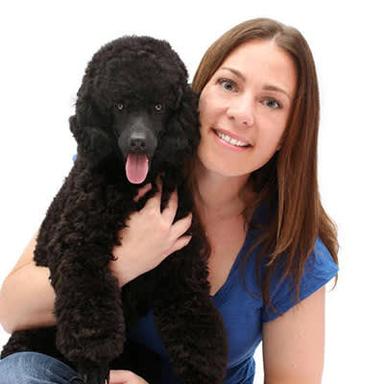
Jackie Brown lives in sunny Orange County, CA, where she works as a freelance writer and editor. When she’s not on deadline, you can find her paddling her outrigger canoe in the Pacific Ocean or hiking in the foothills with her miniature poodle and two young boys.
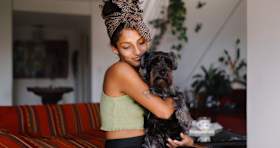
Breed Info

Adoption Advice

Adoption Advice

Breed Info
Are Dachshunds the worst breed ever? No — but they get a bad rap. There’s a lot of charm behind those quirks. Learn why they might just be the best breed ever.
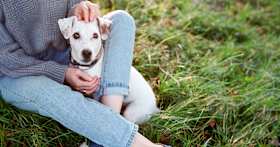
Breed Info
Even though smaller dogs live longer, big dogs can still pack a healthy punch.
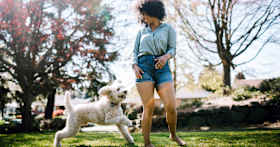
Breed Info
A breakdown of the most common doodles — and how to find the right one for your lifestyle.
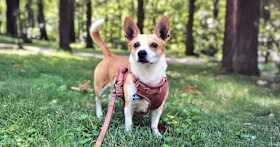
Breed Info
There’s a reason the Queen of England was a huge fan of Corgis. And their mixes are no less obsession-worthy.

Adoption Advice
Deliberating between the two? One is more affordable, comes with fewer health issues, and saves a life.

Breed Info
Are you an extroverted pet-parent-in-the-making looking for a loveable, outgoing pup? Scroll down to meet the friendliest dog breeds who’ll make your life that much more enriching.